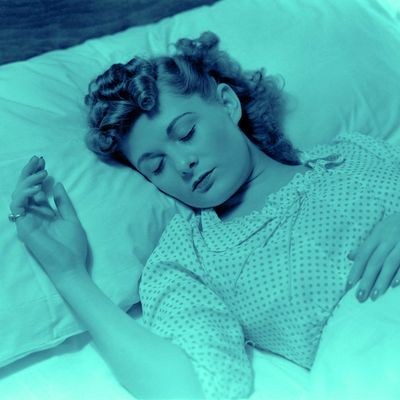
If you’re having a truly terrible day, here are some things that might help you feel a tiny bit better: Take a break from whatever you’re doing. Try journaling about your feelings. Go for a long, head-clearing run.
Here is a thing you maybe shouldn’t do: Try to nap it off. It may be tempting to shut your eyes and temporarily forget about whatever it is that’s making you miserable, but new research suggests it’ll make things worse in the long run: According to a study published today in the journal Nature Communications, sleep has the unfortunate side effect of helping bad memories to stick in your brain.
Much of memory consolidation — the process of moving information from short-term to long-term storage — happens during deep sleep. But as the study authors noted, “it remains unknown how consolidation impacts the effectiveness of voluntary suppression of unwanted emotional memories.” In other words, what role does sleep play when it’s a memory you’re actively trying to forget?
As Andy Coghlan reported today in New Scientist, the study, which aimed to figure out the answer to that question, took place in two phases:
[In the first], 73 male students memorized 26 mugshots, each paired with a disturbing image, such as a mutilated body, corpse or crying child. The next day they were asked to recall the images associated with half the mugshots and actively try to exclude memories of the rest of the associated images…
The group were then directed to memorize another 26 pairs of mugshots and nasty images. Half an hour later they again thought about half the associated images and actively suppressed memories of the rest.
Finally, they were asked to describe the image associated with each of the 52 mugshots. The idea was to see if trying to suppress a bad memory works better before or after sleep.
Even when they tried to forget them, most of the participants could still recall the unpleasant photos they’d viewed the day before — suggesting, the study authors wrote, that sleeping on bad memories will counteract any effort you make to shake them loose.
The researchers also scanned their subjects’ brains during the study, discovering that the act of consciously forgetting looked different before and after sleep: When participants focused on banishing the photos from their minds shortly after viewing them, most of the activity took place in the hippocampus, which handles memory. But “after a night’s sleep, the task required activity in a much more diverse set of regions, including more evolutionary advanced ‘thinking’ parts of the brain,” Coghlan explained. Done correctly, a nap will feel restorative most of the time — this appears to be the rare, but glaring, exception.




